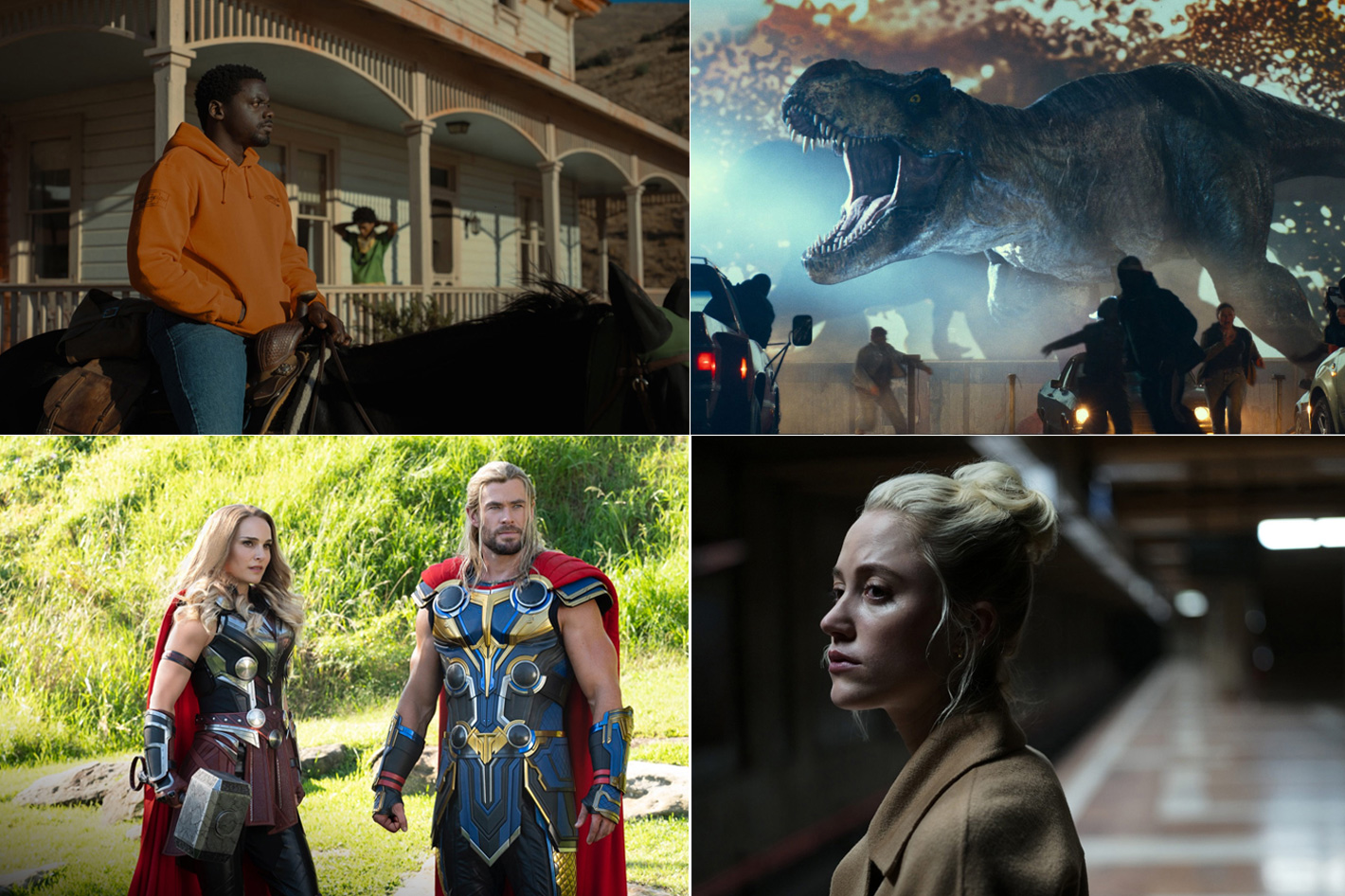
No one knows the brand of brushes used by famous painters to paint their masterpieces or which brand of tools sculptors picked to, as Michelangelo hinted, “find the statue inside a block of stone” but that’s because there was no Internet then. Now, everyone can find out which tools different artists use, a knowledge that helps brands to sell their products and may, in the end, help consumers to buy the tools that helped the creators they admire reach their goal.
Key modern tools, for moving image makers, are cameras and editing software, so Blackmagic Design announced, as the month of August arrived, that more than 30 of the 2022 summer season’s worldwide film releases, such as “Thor: Love and Thunder,” “Jurassic World Dominion” and “Bullet Train,” were created with its Blackmagic Pocket Cinema Camera and URSA Mini Pro 4.6K G2 digital film cameras, DaVinci Resolve Studio editing, grading, visual effects (VFX) and audio post production software, and more.
Highly anticipated films such as “Elvis” relied on Blackmagic Design gear throughout both production and post, with the film using Pocket Cinema Camera 6K for pick up shots and DaVinci Resolve Studio for on set grading, online editing and final color grading.
Summer blockbusters and breakout independent projects alike continued to use DaVinci Resolve Studio for their post production needs, including films such as “Top Gun: Maverick,” “Nope,” “The Black Phone” and “Crimes of the Future.” So, without further ado, here is the list made available by Blackmagic Design.
Summer films that used Blackmagic Design cameras include:
- “Poser” DP Logan Floyd used URSA Mini Pro 4.6K G2s;
- “Three Headed Beast” Director and DP Fernando Andres used Pocket Cinema Camera 4K;
- “Watcher” DP Benjamin Kirk Nielsen used Pocket Cinema Camera 6K to capture VFX and news footage; and
- “The Wrong Place” DP Peter Holland and Second Unit DP Laura Nolan used Pocket Cinema Camera 6K for extensive second unit photography.
Summer films that used Blackmagic Design products for editing and VFX:
- “Elvis” Editors Jonathan Redmond and Matt Villa used DaVinci Resolve Studio for the conform and grade, as well as UltraStudio capture and playback devices within their offline editing pipeline;
- “Endangered” VFX Supervisor Alex Noble of Wild Union Post used DaVinci Resolve Studio within his VFX pipeline;
- “Neptune Frost” Assistant Editor Skylar Zhang used DaVinci Resolve to create dailies as part of the editing pipeline;
- “Resurrection” VFX Supervisor Alex Noble of Wild Union Post used DaVinci Resolve Studio within his VFX pipeline;
- “Samaritan” VFX Supervisor David Lebensfeld of Ingenuity Studios used DaVinci Resolve Studio within the VFX pipeline; and
- “Where the Crawdads Sing” Editor Alan Bell used UltraStudio HD Mini.
Summer films that used DaVinci Resolve Studio for post production include:
- “Allswell” graded by Nicholas Lareau of Nice Shoes;
- “Barbarian” graded by Sam Daley of Light Iron;
- “Beast” graded by Stefan Sonnenfeld of Company 3;
- “Billion Dollar Babies: The True Story of the Cabbage Patch Kids” co produced by NBCUniversal Syndication Studios and Believe Entertainment Group and graded by Sal Malfitano of Nice Shoes;
- “The Black Phone” graded by Supervising Colorist Nat Jencks of PostWorks New York and Additional Colorist Jason Fabbro of Picture Shop;
- “The Bob’s Burgers Movie” graded by Philip Beckner of FotoKem;
- “Bullet Train” graded by Dave Hussey of Company 3;
- “Cha Real Smooth” graded by Nat Jencks of PostWorks New York;
- “Crimes of the Future” graded by Bill Ferwarda of Company 3;
- “Don’t Make Me Go” graded by Philip Beckner of FotoKem;
- “Elvis” graded by Colorists Kim Rene Bjørge and Kali Bateman and Supervising Colorist Brett Manson;
- “Emily the Criminal” graded by Walter Volpatto of Company 3;
- “The Janes” graded by Ken Sirulnick of Goldcrest;
- “Jurassic World Dominion” graded by Stefan Sonnenfeld of Company 3;
- “The Man from Toronto” graded by Stefan Sonnenfeld of Company 3;
- “Neptune Frost” graded by Catherine Pantazopoulos, and Nicolas Perret on behalf of Lobster Films;
- “Nope” graded by Greg Fisher of Company 3;
- “Poser” graded by Ori Segev using DaVinci Resolve Micro Panel;
- “Resurrection” graded by Nat Jencks of PostWorks New York;
- “Sharp Stick” graded by Nat Jencks of PostWorks New York;
- “Thor: Love and Thunder” graded by Jill Bogdanowicz of Company 3;
- “Top Gun: Maverick” graded by Stefan Sonnenfeld of Company 3; and
- “Watcher” graded by Stephen Nakamura of Company 3.
Summer films that used Blackmagic Design products for production include:
- “Beast” DIT Lentsoe Mamatela used DaVinci Resolve, UltraStudio 4K Mini and DeckLink Mini Monitor playback card;
- “The Black Phone” DIT Jason Johnson used DaVinci Resolve Studio, Videohub routers and UltraStudios;
- “Emily the Criminal” DP Jeff Bierman used DaVinci Resolve Studio on set for grading select shots;
- “Flux Gourmet” DIT Richard Strong used DaVinci Resolve Studio for on set and dailies work;
- “The Forgiven” DIT Daniel Alexander of Digital Orchard used DaVinci Resolve Studio for on set and dailies work; and
- “Samaritan” DIT Stuart Huggins used DaVinci Resolve, ATEM Mini Pro ISO live production switcher, MultiView 16 monitor, Smart Videohub CleanSwitch 12×12, DeckLinks and UltraStudios.
